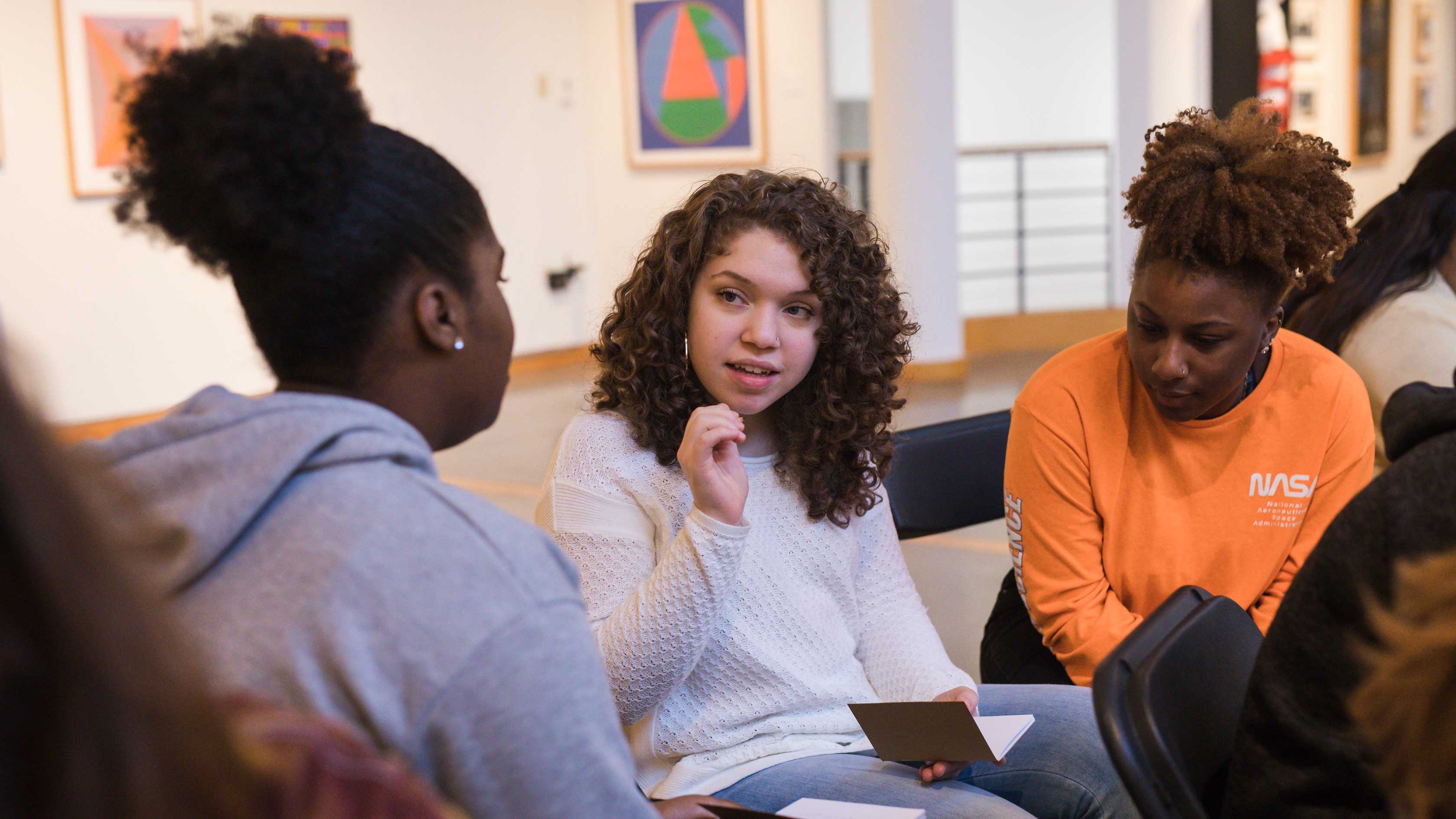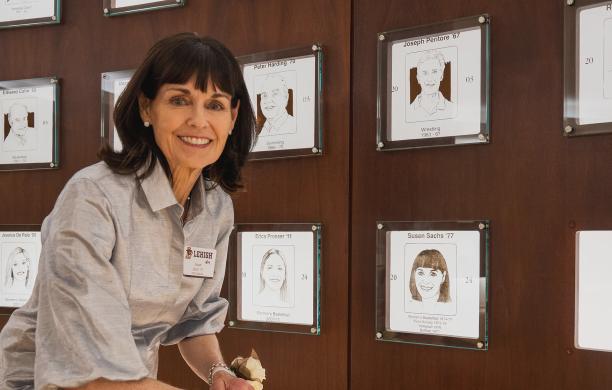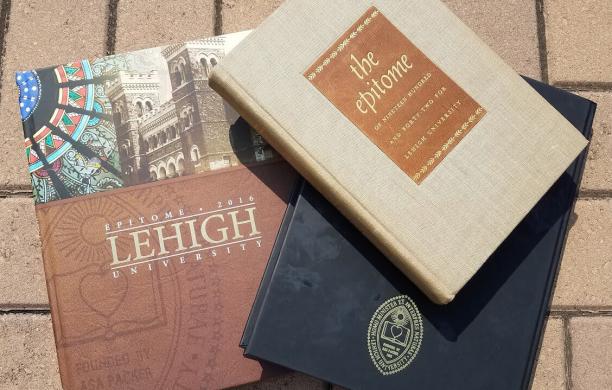A phone rings at 6 a.m. in June 2001, and Gail Riess Saltz ’84 picks up. It’s a producer at the Today show, hoping Saltz can come to the studio now to speak with host Katie Couric about some shocking news. A mother in Texas has drowned her five children in a bathtub.
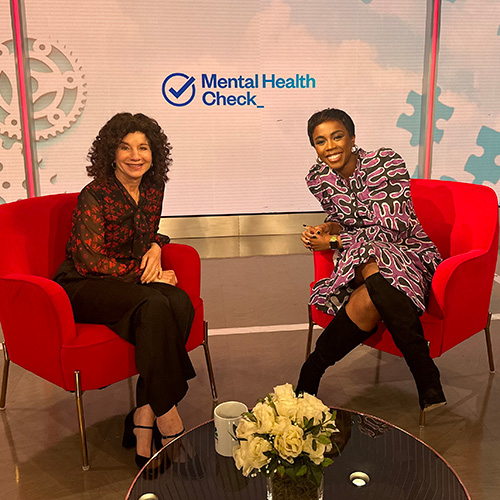
When the call ends, Saltz starts to get ready. It is not her first appearance on morning television. As a clinical associate professor of psychiatry at The New York Presbyterian Hospital and Weill-Cornell Medical College as well as a psychoanalyst in private practice, Saltz has been taking media calls since 1993. Her knack for it has now turned into a passion. She wants to help educate the public in order to shift the stigma around mental health.
She heads to the studio, where she sits with Couric to discuss postpartum psychosis. Saltz tells viewers that many women get the baby blues. But then she pushes further. Some women who love their babies with all their hearts may even have a fleeting distressing thought like abandoning or harming their baby. Most, however, would never and don’t ever act on it; most recognize it comes from the stress and struggle, sleep deprivation, and normal ambivalence of new motherhood.
While Saltz’s explanation of theory helps frame the tragic news, it is Couric’s admission of understanding, the sudden recognition and experiences as a mother herself, that helps reframe the discussion — how maternal ambivalence could, in fact, happen to anyone.
“It’s a moment that moves the idea of ‘how horrible of me’ to ‘how normal of me,’” says Saltz of that 2001 interview with Couric. Normalizing conversations about mental health has been the mission of Saltz’s career over decades of newspaper and television interviews, self-help books,and the treatment of countless patients.
Lehigh Days
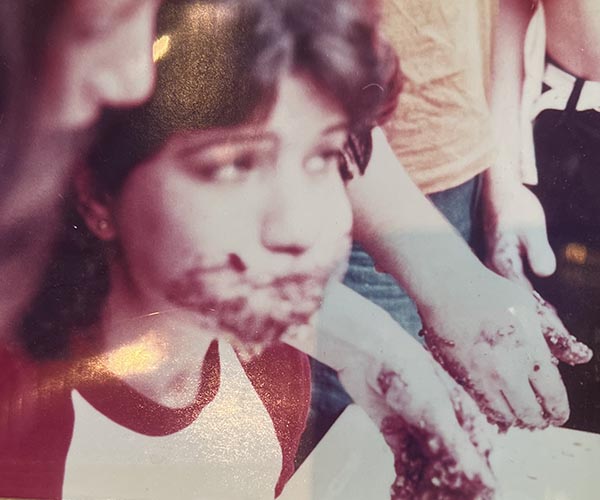
Saltz knew she wanted to go to college and become a doctor, but there weren’t many guidance counselors back in high school to assist her with that journey. A friend she met through her high school theater program attended Lehigh and invited Saltz to South Mountain for a weekend.
“It was exactly what I imagined a college would look like,” she says. “Lehigh was quintessential — I loved the feeling on campus and the students I met.”
She applied early decision, got in, and considered herself on the pre-med track.
She had fun socially, loving her four years at Lehigh. Her roommate for three of those years still remains one of her best friends — together they traveled back to their 40th Reunion. She was cast in a production of Glass Menagerie, won the blueberry pie-eating contest during Spirit Week, sat on a bed for the big downhill race, and was a member of Alpha Gamma Delta, living in the sorority house for a year.
But her academics didn’t take a back seat to anything.
“I was a serious student,” she says.
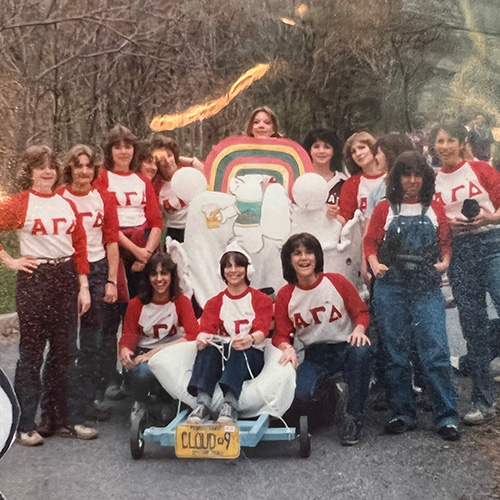
She made cold calls to the local hospital with the goal of shadowing a resident. She spoke with her biology professor and soon was serving as a laboratory teaching assistant.
“I learned a skill set at Lehigh to make things happen,” she says. “If I found something interesting or I had an idea, I was creative and figured things out.”
This ambition and drive got her into several of her top choices for medical school. She selected the University of Virginia. Early on, she noted her love of following psychiatrists during rounds. Her internship and residencies were in New York City at Weill Cornell Medical College. Again, the highlight of her week was her exposure to psychiatry.
So when she finished a two-year residency in internal medicine, she went on to complete a two-year residency in psychiatry. Soon she settled into a life of work and clinical studies in psychoanalysis and a fellowship in treating sexual dysfunction. She taught at Cornell, gave talks, and managed her private practice.
Message Across Media
In 1993, she began to field media calls, answering questions asked of Cornell doctors. She got in the habit of providing a clinical perspective on topical news. At that point in popular opinion, mental health issues were often considered a personal moral failure or a weakness of character that could be remedied through sheer will. Even worse, psychiatrists were often portrayed in the media as quacks, abusers, or sociopaths.
Saltz quickly learned how the general public was not versed in the neurobiological and environmental causes of mental health issues, nor their treatments. The only previous person helping raise awareness on a broad scale was Dr. Joyce Brothers, considered the “mother of TV psychology.”
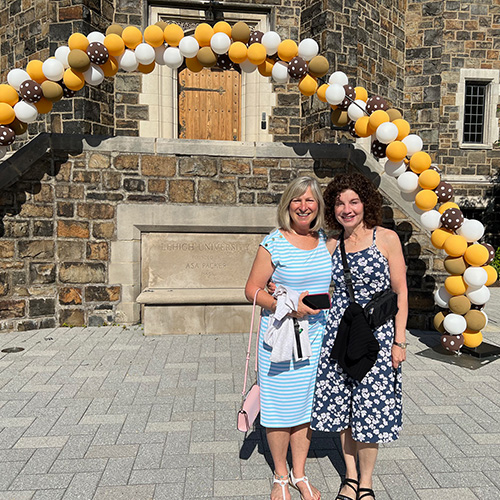
Saltz sought to use her medical knowledge, like Brothers, to destigmatize mental health issues. Soon she was regularly in print and on television. Her conversation with Couric on Today opened a door.
The executive producer asked Saltz to return to the show with ideas on how to better discuss important psychological and psychiatric topics, understand why humans do what they do, and share where, when, and how to find help.
For 13 years, Saltz served as a regular contributor to the program.
It opened up new platforms for her, including writing children’s books on the birds and the bees and heftier tomes on intimacy, dishonesty, and authenticity.
After Saltz had a handful of appearances on The Oprah Winfrey Show, a production company flew her out to Los Angeles to consider her own syndicated television show — an opportunity to reach millions of people. But she had learned something about herself over the years.
“I was educated and trained in a medical model,” she says. “I was not an entertainer. There are ethical lines I would not cross because I wanted to be taken seriously, maintain my integrity as a professional, and give people science-based information they could trust.”
While she moved on from the idea of her own show, she knew she still could educate the public even more on the wave of raising awareness as other doctors took to the airwaves around mental health.
Book Into Play
Her latest endeavor centers around her most recent book, The Power of Different, which explores the neurobiological relationship between potential extreme strengths and what some call “disabilities.”
“We all have differently wired brains based on many genetic and environmental variabilities,” she says. “While this might predispose people to struggles, the stigma of neurodiversity is incorrect. Different brain wiring offers unique strengths and abilities and at its core defines many notable people.”
She has taken the theories from her book and partnered with a variety of historians to discuss political figures, artists, and changemakers. This series on psycho-biography is hosted by the 92nd Street Y and has included conversations about Charles Darwin, Ulysses S. Grant, and Leonardo di Vinci.
She even held a discussion for a Lehigh event with a Lehigh history professor on Abraham Lincoln, arguing that his melancholy was a factor that played a crucial role in his success and greatness.
A dance and theater troupe in Britain is in the midst of transforming the nonfiction book for the stage. Saltz is serving as a scientific producer, reviewing the script for accuracy, and will be on hand for a talk-back forum after the show.
It is an artistic opportunity to share knowledge so a new community of people can recognize mental health struggles, intervene early, alleviate suffering, and discover strengths.
It’s one of the reasons her 40th Reunion at Lehigh was such a delight. Yes, seeing friends, remembering pranks, reliving memories, and meeting people were great. But Saltz was happy when she visited her sorority house and witnessed the support system for sisters struggling with alcohol, sexuality, academics, and mental health.
It has led to conversations with Beth Dolan, dean of the College of Health, about ways to embed mental well-being into the Lehigh experience at a variety of student touchpoints. Together they seek to enhance existing programming.
These moments serve as proof points that stigmas have shifted, that Saltz has dedicated her professional life to something that could create a ripple effect where impact flows out and laps against distant shores, soothing those who once suffered in silence.
